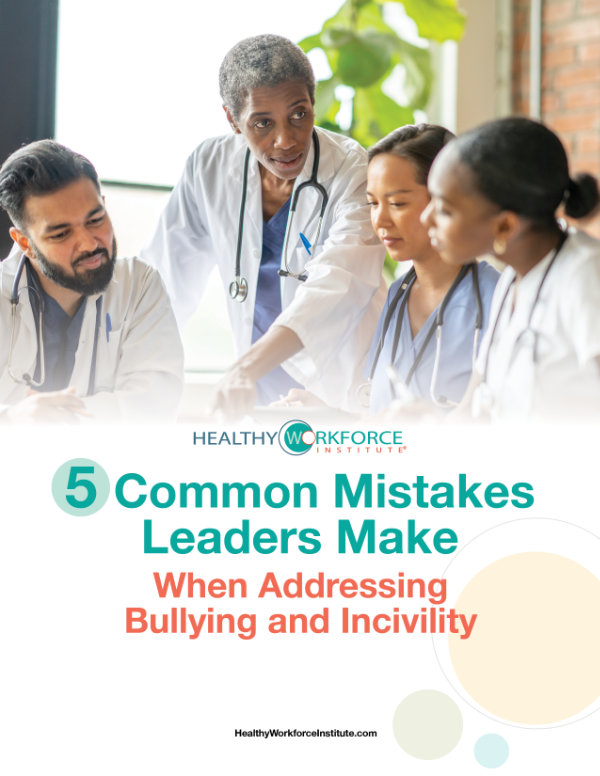 You have frustrated preceptors in your office complaining about your new graduate nurses. Not only are they asked repeatedly to precept new nurse after new nurse, but these are the least prepared new graduate nurses they’ve ever seen; AND these new nurses are leaving within the first year. Your preceptors are at their wits end and constantly complaining to you about it. To make matters worse, your experienced nurses aren’t hiding their feelings about how unprepared these new grads are. They openly criticize them, saying things like, “I can’t believe you don’t know this!” Do you think that new grad will ask another question? Nope. That’s a huge patient safety concern.
You have frustrated preceptors in your office complaining about your new graduate nurses. Not only are they asked repeatedly to precept new nurse after new nurse, but these are the least prepared new graduate nurses they’ve ever seen; AND these new nurses are leaving within the first year. Your preceptors are at their wits end and constantly complaining to you about it. To make matters worse, your experienced nurses aren’t hiding their feelings about how unprepared these new grads are. They openly criticize them, saying things like, “I can’t believe you don’t know this!” Do you think that new grad will ask another question? Nope. That’s a huge patient safety concern.
And your new grads will feel embarrassed, unwelcomed, unsupported, and they will leave. The new graduate nurse first year turnover rate is 27.7% (NSI, 2022).
Why are new graduate nurses so unprepared?
Experienced nurses are expected to help onboard and orient new nurses. It’s been that way for the last 150 years. In the past, new graduate nurses were better prepared to enter into the workforce. The pandemic disrupted nursing education and we are currently experiencing the impact these new graduate nurses encountered. Today’s new grads are not prepared nor equipped to manage the complexity of patient care. As a result, the experienced nurses are forced to teach them the knowledge, skills, and behaviors they should have learned in nursing school.
- 7% of new graduate nurses do not feel their nursing education adequately prepared them for their first position based on the 2021 National Student Nurses’ Association New Graduate Survey, and
- 8% do not feel confident in their ability to practice
- Undergraduate nursing students indicated they were most uncomfortable to independently:
- 5% respond to an emergency code or changing patient condition
- 9% manage the care of central lines
- 35% interpret EKGs and telemetry monitoring
- 33% were extremely uncomfortable having a four-patient assignment
Here’s the deal.
Your experienced nurses are right. The new nurses entering today’s workforce are the least prepared new graduates of any new nurses we’ve seen in our lifetime.
But it’s not their fault!
Think about it. These new graduate nurses learned how to become a nurse during a global pandemic and gained most of their knowledge and skills virtually or in a simulation lab. Tell your experienced nurses to quit being mean to them! It’s not the new graduate nurses fault their nursing education and clinical experiences were directly impacted by the pandemic. They got robbed! And they already feel unprepared as they transition into practice!
Bridging the performance gap with today’s newest nurses
As leaders, you waste precious time and energy listening to the barrage of complaints about your new grads from your experienced nurses. You try to defend them, reminding your preceptors that they were once new and to give them a break. Or, you may join in and complain with them! “Yes. I know! They are awful but I can’t get any experienced nurses to work with us, so I’m left to hire these new grads.”
None of that works.
How to Create a Learning Culture for Unprepared New Graduate Nurses
-
Agree and redirect
Any time you can agree with your employees, agree with them but always throw in a redirect. When a preceptor barges into your office complaining about your new grad’s lack of basic skills, say this, “You’re right. Many of the new nurses we’ve hired are unprepared and do lack some of the basic skills we would expect them to have (agree). But it’s not their fault. Blaming them and complaining about it won’t help. Instead of blaming and complaining, let’s spend our time and energy on solving this issue (redirect).
-
Create a learning culture mindset
In her TED talk, Margaret Heffernan speaks on how to cultivate a learning culture, which can help your experienced nurses focus on helping instead of blaming. Her research found that organizations that embedded “helping each other” as a value/expectation (not competing against each other) were more productive, more engaged, and had higher satisfaction.
In our article, 8 Attributes of a Healthy Team, we emphasize the importance of continuous improvement, honest and respectful feedback, and kindness – no matter what? Experienced nurses should hyperfocus on creating a helping environment where they support new graduate nurses as they learn – not squash them.
How can you create a culture of helping in your department?
Start by setting an expectation that we help each other – no matter what!
When you’re rounding ask your team members, “How can I help you?” or “What do you want to learn today?”
In huddle, remind everyone to “help” each other today. And, during end of shift huddle ask your team to share how someone helped them today.
Make helping each other the “way we do business” here!
-
Pick 3 critical skills
Get together with your experienced nurses. Identify 3 skills they believe new grads need to master in your department.
If you work cardiac – they better know how to read EKGs and the telemetry monitor.
If you work pulmonary – they better know how to suction a tracheostomy patient or manage a chest drainage system.
You get the point. Pick 3 critical skills they need to master and TEACH them these skills. All of you.
Then, pick the next 3 and so on and so on. Simply begin with 3 skills.
What this does is create a learning and helping culture – not a blaming culture.
You’re spending time and energy recruiting as many nurses as you can. But if you don’t help create an environment where they feel welcomed and supported, they will leave you.
Remember, it’s not just about recruitment. It’s about retention!
Once you get them, focus on how to cultivate a culture where everyone helps each other to professionally grow, develop, and learn. Trust me; do this and nobody will want to leave your department.













1 thought on “How to Create a Learning Culture for Unprepared New Graduate Nurses”
This article is very insighful and helpful. Will surely implements these tips. Thanks for sharing!